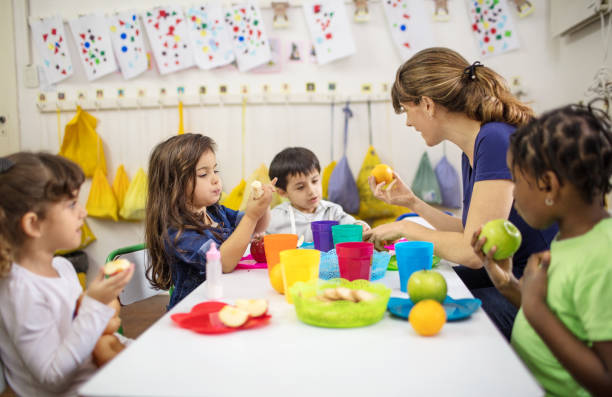(ThyBlackMan.com) Educational environments are not just places where academic skills are developed; they are crucial grounds for fostering resilience and confidence among students. From early education settings like child care in Kogarah Bay to higher education, the strategies educators employ can significantly influence the personal development of their students. By integrating specific educational practices focused on resilience and confidence, teachers can provide students with the tools they need to navigate life’s challenges successfully.

Importance of Early Education in Developing Resilience
Building a Foundation in Early Learning
In early education, the emphasis on creating a safe and nurturing environment is vital. This stage is crucial for the development of trust and security, which are foundational for resilience. Early childhood educators can foster these traits by consistently responding to the emotional needs of children, thus promoting a sense of stability and care.
Encouraging Exploration and Play
Play-based learning is an effective method to encourage exploration and problem-solving from a young age. In environments such as child care Kogarah Bay, children learn to engage with their peers, face challenges, and find solutions in a controlled, supportive setting. This early exposure to problem-solving builds confidence and resilience, equipping children with the mindset to approach obstacles with curiosity rather than fear.
Role of Caregivers and Teachers
Caregivers and teachers in early education play a pivotal role in modeling resilience. Through their responses to daily challenges and interactions with children, educators can exemplify coping strategies that children can learn and mimic. The emotional climate that teachers create can influence a child’s ability to manage their own emotions and handle adversity.
Enhancing School-Age Education with Resilience-Building Strategies
Integrating Social-Emotional Learning (SEL)
As children progress into primary school singapore and secondary education, integrating social-emotional learning into the curriculum becomes essential. SEL programs designed to teach students about empathy, self-regulation, and cooperative skills directly contribute to building confidence and resilience. These skills help students manage both their academic and social pressures effectively.
Curriculum that Supports Risk-Taking
Incorporating activities that promote healthy risk-taking within the curriculum can further enhance resilience. This might include public speaking, participating in new sports, or engaging in artistic performances. Such activities encourage students to step out of their comfort zones and learn to deal with the possibility of failure in a supportive environment.
Strategies for Sustaining Resilience in Higher Education
Promoting Autonomy and Independence
As students advance into higher education, promoting autonomy becomes key. By encouraging students to take charge of their learning and make independent decisions, educators can help them build resilience. Autonomy in educational tasks promotes a sense of responsibility and prepares students for the realities of adult life where choices come with significant consequences.
Continuous Support and Resources
Providing continuous support through mentoring, counseling, and access to resources is vital in higher education. These supports ensure that students do not feel overwhelmed by challenges but instead feel equipped to face them. Mentorship programs, in particular, can be a powerful tool for building confidence and resilience, as they offer guidance, advice, and encouragement through more experienced individuals.
Conclusion
Educational institutions play a critical role in developing resilient and confident individuals. By adopting strategies that promote emotional intelligence, risk-taking, problem-solving, and autonomy, educators can significantly impact their students’ ability to thrive in the face of challenges. From the formative experiences at places like child care in Kogarah Bay to the advanced learning stages in universities, the journey of education can be a transformative path toward resilience and confidence, fundamentally shaping students’ futures for the better.
Staff Writer; Stella Jones

















Leave a Reply